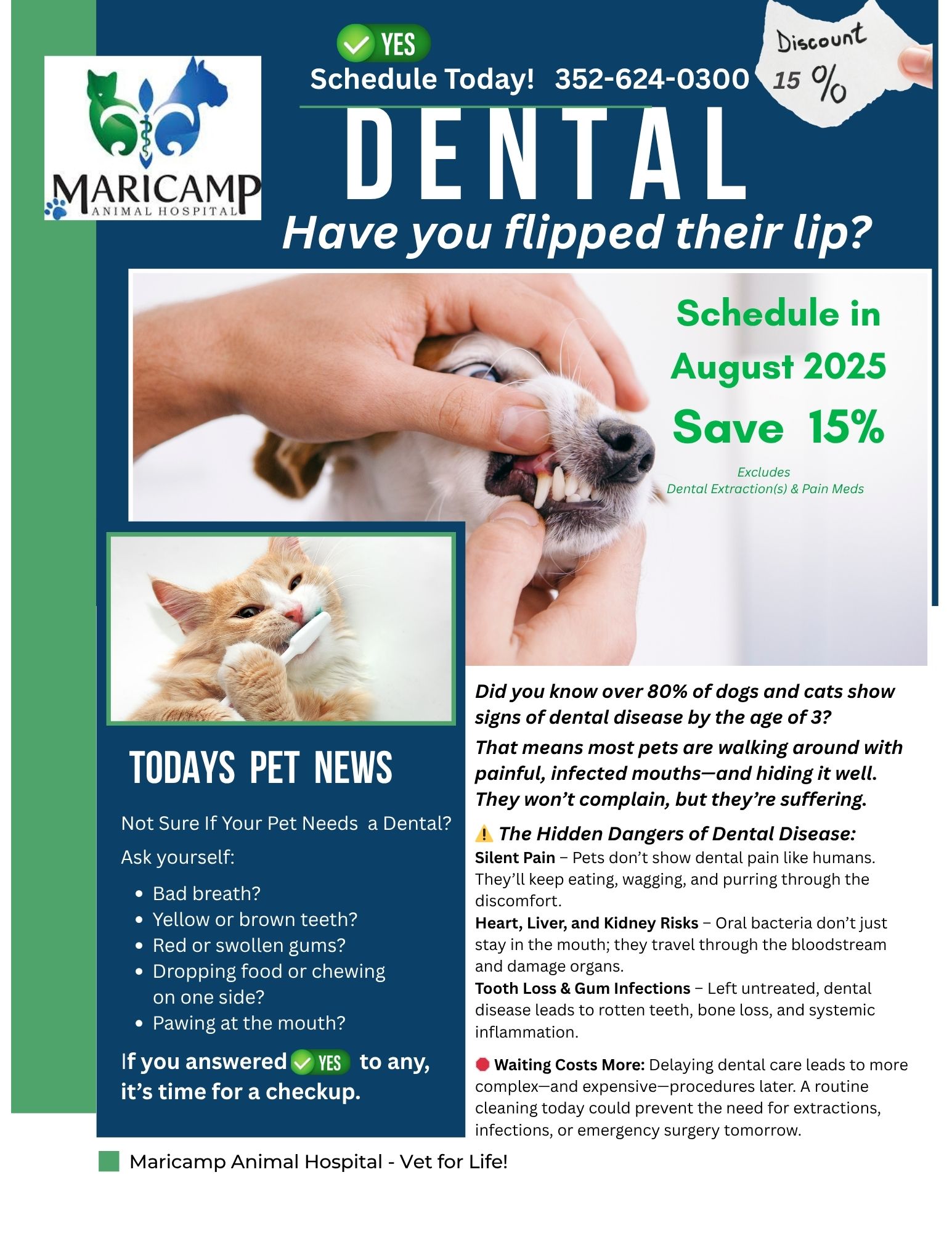❓ Why does my pet need a dental cleaning if they’re still eating normally?
Most pets hide dental pain very well. Just because your pet is eating doesn’t mean their mouth is healthy. Pets will chew on one side, eat slower, or adjust how they eat to avoid pain. By the time they stop eating, the issue is often advanced and painful. Early intervention = less suffering and fewer extractions.
❓ How often should my pet get a dental cleaning?
We recommend annual dental exams and cleanings for most pets.
Some breeds (like Yorkies, Chihuahuas, Bulldogs, and other small or flat-faced breeds) may need cleanings every 6–12 months due to their predisposition to dental disease.
Some breeds (like Yorkies, Chihuahuas, Bulldogs, and other small or flat-faced breeds) may need cleanings every 6–12 months due to their predisposition to dental disease.
❓ What’s included in a dental procedure at Maricamp?
Our dental cleanings include:
- Full oral exam
- Pre-anesthetic bloodwork
- Safe general anesthesia
- Ultrasonic scaling and polishing
- Digital dental X-rays to evaluate below the gumline
- Tooth extractions if needed (with your consent)
- Pain management and at-home care instructions
❓ Is anesthesia really necessary for dental cleanings?
Yes. Anesthesia allows us to clean beneath the gums, take accurate X-rays, and safely perform any needed extractions. “Awake” cleanings only scratch the surface and can be dangerous and stressful for your pet — and they miss the most important areas where disease hides.
❓ Are dental X-rays really important?
Absolutely. Over 60% of dental disease is hidden below the gumline. Digital dental X-rays allow us to detect tooth root infections, bone loss, abscesses, and more — problems you simply can’t see on the surface.
❓ How much does a dental cleaning cost?
Dental costs vary based on your pet’s needs, but we’re transparent every step of the way. We’ll give you a personalized estimate after examining your pet. Our team is also happy to discuss payment options and how to prioritize your pet’s care responsibly.
❓ What can I do at home to help my pet’s dental health?
Great question! Here’s what helps:
- Daily brushing with pet-safe toothpaste
- Dental chews approved by your vet
- Water additives and oral rinses
- Yearly exams to catch issues early
Our team will walk you through a home dental plan tailored to your pet!
❓ My pet is older. Is it safe for them to go under anesthesia?
Yes — as long as we take proper precautions. We run full pre-anesthetic bloodwork, tailor anesthesia to their specific needs, and use modern monitoring equipment during the entire procedure. In fact, older pets are often the ones who need dental care the most to stay comfortable and healthy.

—————————–
